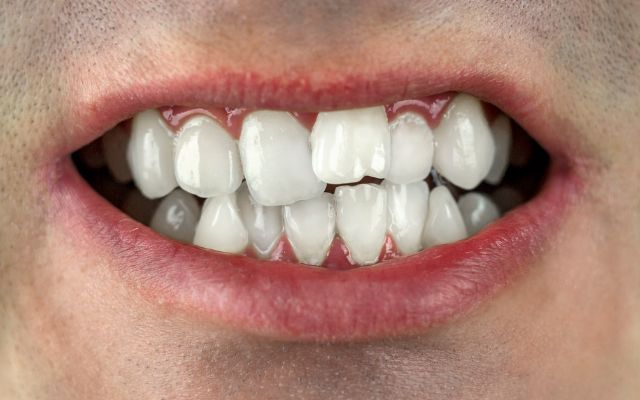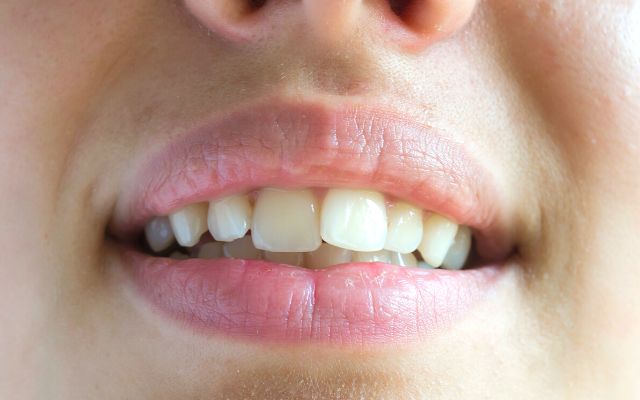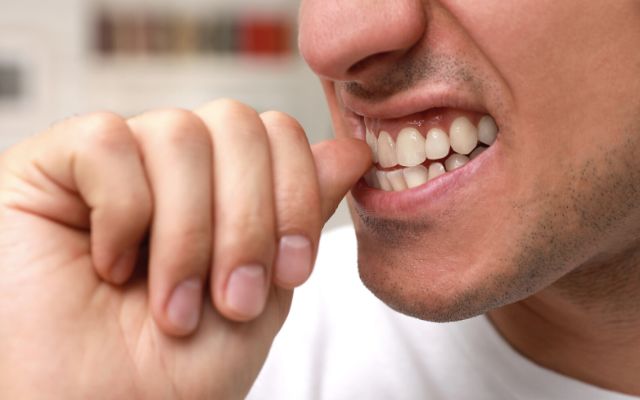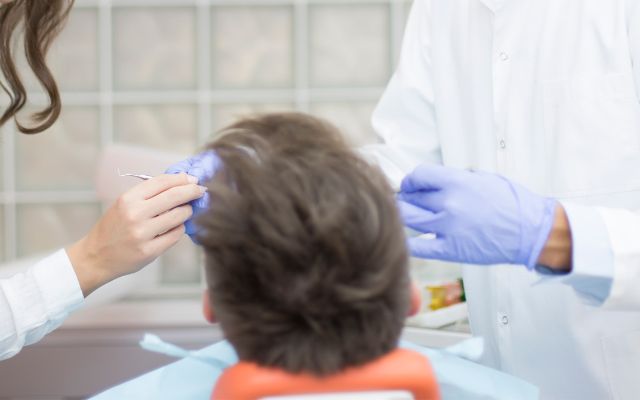Twisted Teeth can cause issues with bite alignment, speech, and oral hygiene, making them more than simply a cosmetic concern. This article provides additional information regarding the causes, symptoms, and treatment options, among other things.
Let’s get started!
What Is Twisted Teeth?

Twisted Teeth is a dental condition where teeth are crooked, overlapped, or twisted due to malocclusion. It can cause dental issues such as difficulty in chewing and speaking, increased risk of dental decay and gum disease, and TMJ.
Malocclusion can be caused by genetic factors, developmental abnormalities, trauma to the face or jaw, thumb-sucking, or improper dental care. Severity can vary, and treatment may be necessary depending on the severity of the condition.
Comparison of Twisted Teeth and Malocclusion
| Aspect | Twisted Teeth | Malocclusion |
|---|---|---|
| Definition | Teeth that are crooked, overlapping or twisted due to malocclusion | Misalignment or incorrect positioning of teeth and/or jaws |
| Technical Term | No | Yes |
| Scope | Narrow | Broad |
| Dental Issues | Crooked, overlapped, or twisted teeth | Improper bite, spacing issues, functional problems with the jaw |
| Causes | Genetics, thumb-sucking, injury, or improper dental care | Genetics, developmental abnormalities, trauma to the face or jaw |
| Severity | May be mild or severe | May be mild or severe |
| Treatment | May require orthodontic treatment | May require orthodontic treatment or surgery |
Reasons of Twisted Teeth

There are numerous causes for teeth to become crooked or misaligned. Among the most frequent causes are:
Genetics
Genetics is the most common cause of twisted teeth. If a person’s parents have twisted teeth, they are more likely to acquire them themselves.
Early childhood conduct
Consistently sucking on a thumb or pacifier over an extended period can lead to the shifting and misalignment of teeth. Such changes can require intervention from a dental specialist, including the use of traditional metal braces to correct the positioning of permanent teeth.
Injury
Injuries to the face or jaw can cause teeth to become dislodged or twisted.
Tooth decay
When a tooth is lost, the surrounding teeth may shift to cover the void, leading them to become twisted or misaligned.
Size and shape of the jaw
If a person’s jaw is too tiny or too large for his or her teeth, this can lead to crowding or spacing issues, which can result in twisted teeth.
Gum disease
Extensive gum disease can loosen and displace teeth, resulting in teeth that are twisted.
It is crucial to note that some instances of twisted teeth may be the result of a mix of these causes. A dentist or orthodontist is able to examine a patient’s teeth and identify the optimal course of treatment for each unique situation.
Symptoms of Rotated Teeth

Rotated or twisted teeth may not always manifest obvious signs. Yet, frequent symptoms of twisted teeth include the following:
- Misaligned or crooked teeth: This is the most noticeable indication of twisted teeth. There may be visible rotation, overlap, or abnormal spacing of the teeth.
- Difficulties in tooth cleaning: The inability to adequately clean between twisted teeth might increase the likelihood of dental decay, gum disease, and poor breath.
- Bite troubles: Misaligned teeth can lead to bite issues such as overbite, underbite, and crossbite, which can impact how the teeth come together when chewing or speaking.
- Speech problems: Twisted teeth can lead to lisps and other speech difficulties.
- TMJ disorder: Teeth misalignment can result in temporomandibular joint (TMJ) disorder, which causes pain and discomfort in the jaw joint.
- Persistent headaches can be an indication of rotated teeth, especially if the misalignment causes stress on the jaw and neck muscles.
See a dentist or orthodontist for an evaluation if you are experiencing any of these symptoms. Options for treatment, including braces or clear aligners, can assist to straighten rotated teeth and enhance dental health and well-being.
Benefits of Addressing Twisted Teeth
Twisted teeth are not merely an aesthetic concern. This illness can also address multiple oral health issues. For instance, the treatment of twisted teeth can help:
Decrease dental caries and gum disease
When teeth are twisted or overlapped, it can be difficult to clean them effectively. This can lead to a buildup of plaque and disease-causing germs. Fixing this problem enables patients to access difficult-to-reach parts of their teeth for cleaning.
Decrease tooth decay
When teeth are misaligned, unneeded or uneven pressure is placed on the bite, leading to enamel wear and tear. Fixing a tooth that is twisted can assist to distribute forces evenly for a healthier smile.
Decrease jaw tension and orofacial discomfort
A misplaced tooth can occasionally result in an irregular bite, which causes stress on the jaw joints. Fixing a twisted tooth can restore the bite and alleviate TMJ disorder-related pain.
Boost your confidence
In addition to the health problems that might result from twisted teeth, patients may also feel self-conscious about their smile. Teeth alignment can boost patients’ self-confidence.
How to Treat Rotated Teeth?

Orthodontic intervention, such as braces or clear aligners, is often required to treat twisted teeth. The precise treatment strategy will depend on the degree of the rotation, the patient’s age, and other considerations.
Following are some popular options for treating twisted teeth:
Braces
Conventional metal or ceramic braces utilize brackets and wires to exert pressure and gradually reposition the teeth into the proper position. The duration of treatment can vary, but commonly ranges from a few months to a few years.
Invisible aligners
Clear aligners, such as Invisalign, progressively push the teeth into place using a series of custom-made clear plastic trays. Typically, aligners are worn for 20 to 22 hours per day and are replaced every one to two weeks.
Retainers
After straightening the teeth, a retainer may be worn to preserve the new dental alignment. This may hinder the teeth from returning to their previous place.
The extraction of teeth
In certain instances, it may be essential to remove one or more teeth to make room for the remaining teeth to shift.
Temporary Anchoring Systems (TADs)
TADs are small screws or pins that are inserted into the jawbone during orthodontic treatment to offer additional support for tooth movement.
Reshaping or bonding
If the rotated teeth are only slightly misaligned, aesthetic dental procedures such as contouring and bonding can be utilized to enhance their appearance.
See a trained dentist or orthodontist regarding the most effective treatment options for rotated teeth. They are able to examine the individual case and offer the best suitable treatment strategy for the patient’s unique requirements.
Preventions for Twisted Teeth

Although some cases of twisted teeth are inherited or cannot be prevented, there are steps that can be taken to lessen the likelihood of acquiring twisted teeth. These are some recommendations for avoiding twisted teeth:
- Excellent oral hygiene
- Reduce thumb-sucking and pacifier use
- If you participate in contact sports or activities, you should wear a mouthguard to avoid tooth damage and misalignment.
- A balanced diet high in calcium, vitamin D, and other minerals that promote healthy teeth and bones can prevent tooth loss and misalignment.
- Immediately address oral health issues
- Orthodontic evaluation
By adopting these preventive steps, individuals can lower their risk of having twisted teeth and preserve good oral health throughout their lives.
Conclude
Twisted Teeth, or rotated teeth, is a common dental issue that affects people of all ages. While heredity may contribute to some cases, other factors like thumb-sucking, tooth loss, and trauma can also play a role. Seeking evaluation and treatment from a qualified dentist or orthodontist is crucial to prevent further damage and improve oral health. Correcting Twisted Teeth promptly can enhance the smile’s appearance and prevent future dental problems.
If you are experiencing Twisted Teeth, it is recommended that you schedule a check-up with a dentist or orthodontist. At Spring Orchid Bassendean Dental, our experienced dentists can help evaluate your case and provide personalized treatment options to meet your needs. Contact us today to schedule an appointment and start your journey towards a healthier smile.
FAQs
Can twisted teeth lead to other oral health issues?
Indeed, twisted teeth can contribute to additional oral health issues such as tooth decay, gum disease, and bite issues, which can cause discomfort, chewing difficulties, and other troubles.
Can teeth twisting be prevented?
Despite the fact that some cases of twisted teeth may be caused by genetics, there are steps that can be taken to reduce the risk of developing twisted teeth, such as maintaining good oral hygiene, limiting thumb-sucking and pacifier use, wearing a mouthguard, proper nutrition, addressing oral health problems promptly, and undergoing an orthodontic evaluation at an early age.
What treatment options are available for twisted teeth?
Typically, orthodontic intervention, such as braces or clear aligners, is required for the treatment of twisted teeth. In certain circumstances, tooth extraction or other aesthetic dental operations may be advised. The optimal treatment strategy will depend on the severity of the misalignment in each particular situation.





